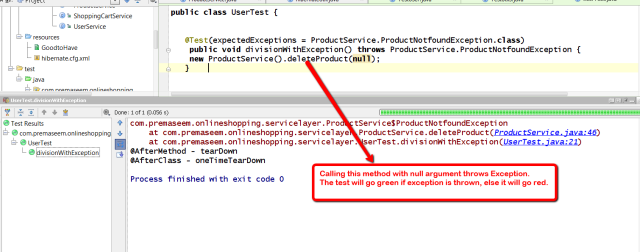Some time performance is critical. Lets a repository call does return the response withing request time out units then it will cause the application to break. Just to keep those things and performance in mind, testNG tests can be calibrate on the measure of time in milli seconds.
The “Time Test” means if an unit test takes longer than the specified number of milliseconds to run, the test will terminated and mark as failed.
import org.testng.annotations.*;public class TestNGTest4 {
@Test(timeOut = 1000)
public void infinity() {
while (true);
// userRepository.getAllUsersInEntireWorld();
}
}
In above example, the infinity() method will not return, so the TestNG engine will mark it as failed and throw an exception
FAILED: infinity org.testng.internal.thread.ThreadTimeoutException: Method public void TestNGTest4.infinity() didn't finish within the time-out 1000 ... Removed 18 stack frames

